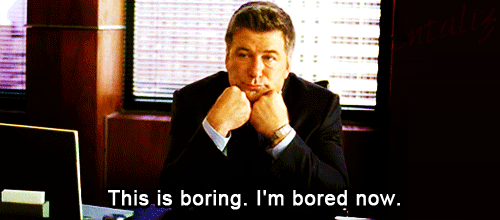What do you think?
Rate this book


416 pages, Mass Market Paperback
First published January 1, 2005
There would be no dragons, not this timeAll the problems in this book boil down to that. Okay, maybe not ALL, but the fact that there are NO DRAGONS when the dragons were one of the best parts of the first installment is a big problem!



Well, you know the plot of this one: for the first time in ages the Forces of Good gather together to rally against the Evil Overlord that has been threatening the peaceful people of a quite absurdly shaped continent. Meanwhile, a party sets out on a quest to help a Chosen One fulfil the Prophecy about the Enemy's weakness. Everyone knows that story. Or at least, you think you do.
The whole business started when Satoris refused to withdraw Men's ability to reproduce after his brother Haomane asked. So now he got stabbed in a thigh, the world was split in two and he's left stranded away from his siblings, the God-like Shapers who molded this world to their fancy. He's in good company in his half of the world, though: he's surrounded by all his siblings' creations. Half of which want to murder him, because Haomane somehow convinced everyone he's the villain. Including Men.
And now Haomane's Allies are even trying to fulfil that old prophecy predicting Satoris's demise...
TL;DR or "please don't spoil the whole thing for me"
The Sundering is a quite enjoyable fantasy novel that seeks to subvert many tropes related to the figure of the Evil Overlord. It features some excellent world-building and well-rounded characters. The plot follows a common high fantasy formula, but as events are justified in light of the unusual Dark Lord character and his backstory, it is still pretty refreshing.
The style is chunky at times, but can also reach unexpected heights of beauty and clarity.
It has some diverse characters, at least more than your usual LoTR rip-off, but struggles heavily with prejudiced representation of certain groups and real-life bias.
PLOT
The premise is certainly interesting. Although I think it would have worked splendidly with a humorous take (something like Satoris getting a PR team to build a less gloomy image?), I quite like the serious take Carey presents. Actually, even though Satoris's backstory is a complete subversion of the Evil Overlord, the plot itself goes down in much more typical high fantasy manner. Which of course means tragedy. It was also pretty clever how Satoris displayed most traditional Dark Lord tropes (sun never shines on his lair and reek of evil for example), but they were all justified in his backstory (e.g. Haomane can spy him through the Sun).
Although the concept is very interesting, the plot had some weaknesses. Especially in Banewreaker, because we follow both factions, we often see the "good guys" only winning through sheer luck, not because of their superior abilities or the antagonist's errors. The trend also continues in Godslayer, although to a lesser extent. There is also a big incongruence in Satoris's characterisation towards the end of the first book: how is genocide less of tarnish to his honour than killing a woman? It is also pretty cringe-worthy, considering real world racism, to see a character we're supposed to empathise with make a fuss of not killing a white woman but showing no regrets exterminating a group of brown people despite the fact that neither of them had directly attacked him, but just set an element of the prophecy in motion.
There is also a certain discrepancy between the way Satoris is framed in the two books, or at least I read his character differently in the two volumes. In Banewreaker, he's presented as a fundamentally good entity, who has been blamed for certain events which were not completely his fault and is thus considered evil. In Godslayer, while his backstory is still told in the same way as in the first volume, we are told he's accepting a role in a Great Story (which we never actually hear or see unfold. I need a sequel) he knows because he used to be a friend of dragons, and he's doing evil only because of that. Even keeping in mind at this point he did commit genocide (no, I'm not over that. I will never be over that. These books lost so many points because of that and Tanaros alone), it's an internal inconsistency, especially because the reason he gives for not killing Cerelinde is that he will not become what his enemies expect him to be... but isn't he embracing it to fulfil the Great Story? I will forever be confused.
STYLE
As anyone following me through my reading has seen, I had some major issues with Carey's writing style. I only study English as a second language, so I sometime struggle reading it, but I've never had so many issues as I had with The Sundering, not even when I first started reading in English. I often had to re-read a passage multiple times to understand how characters and things were disposed and who was speaking or acting. This made fighting scenes almost painful, especially hand-to-hand combat, which reached fanfiction-sex levels of "I give up understanding who's touching who and how".
Still, there were some scenes painted with such perfect clarity it was like seeing them happen, which make me hope Carey has improved since her debut novel.
WORLDBUILDING
The setting was definitely one of the most interesting features of the novels. The world creation myth and the lore about Shapers seemed like they were out of actual mythology. I am aware there are cultures with myths where the world was created from the body of a dead god, so I'm not claiming it was original, but it was still good to read.
I also really liked the different peoples inhabiting Urulat. I wish Carey had devoted more time to cultures other than Ellyl and Men, because they are the only ones she depicts in a stereotypically high fantasy fashion. Fjel and Were's cultures were explored a bit more than the others and they were absolutely great. Although I liked the Fjel better, I am extremely intrigued by the Were's magic. The Fjel were a wonderful subversion of traditional fantasy orcs. I especially liked the ways peoples who had not been given Haomane's gift of thought collected and shared knowledge in different ways (and this was mostly showcased with the Fjel and Were), much in the same way Ellyl can still reproduce, if more rarely, even without Satoris's gift.
Another species which I completely fell in love with were the dragons. Carey really nails the inhuman morality while still making them feel benevolent (when they've eaten recently at least). As they were created directly by the World God, they know more than anyone else, but their depiction doesn't feel like reading about a wise crinkly grandma. I also loved the trend of dragons giving knowledge and power to those who were cast out by society.
CHARACTERS
I generally liked the characters, both factions were well fleshed out and interesting. Some, like Ushahin, Cerelinde and Lilias, were quite memorable in my opinion. Even those I disliked, it usually was because they were bad people, but not uninteresting characters. The only exception to this is Tanaros Blacksword. I felt he really undermined Satoris's characterisation and the story's meaning. Especially in Godslayer, we are told again and again that Satoris welcomes those Haomane's Allies cast out, and we're supposed to take it as a good trait of his. But among the people he has welcomed there's Tanaros. Now, unlike all the other people living in Darkhaven, Tanaros was not fleeing prejudice or unfavourable conditions which were not his fault: he was cast out because he committed a violent crime. Supposedly, the reason he was drawn to Satoris was because they both experienced betrayal at the hands of their loved ones. But their reactions were wildly different, and if the author wanted to paint Satoris as the good guy, she ought to make him refuse Tanaros, because Tanaros is not a good guy by any stretch of the imagination. He also hasn't repented for his actions after centuries. Of course, we can never be sure Carey actually intended Satoris to be a good guy because he does that genocide crap and because about halfway through the story she seems to have changed her mind and made Satoris not a misunderstood good guy but and evil guy who's only evil because a giant cosmic plot demands someone play the role. Personally I like to see Tanaros's whole character as an early warning that Satoris isn't actually a good person/deity/creative entity, although he was in the right in his fight with Haomane. The characters system also suffers from this shift in perspective: up until that point the novels focus on Tanaros as the main character, afterwards Ushahin gains more and more importance. It is implied in the ending that [major giant spoiler]it was uncertain in the Great Story who of them would eventually take up Satoris's role[/spoiler]. Which is a plot point I adored; I almost bumped Godslayer up a star because I liked the ending so much. Still, if I could have avoided having to read through Tanaros's point of view so often I would be happier.
CASUAL "-ism"s
The novels have some very good diversity, but also really problematic aspects.
As I've already said, the genocide of the Yarru-yami reflects a real-world bias that constantly devalues the lives of dark-skinned people.
The books also have issues with sexism and ableism.
It was painful to see Tanaros's actions defended and justified by the same narrative that features Lilias, a character whose main motivation is seeking the power which is denied to her because of her gender. Tanaros killed his wife out of jealousy when he discovered she cheated on him. Never in the whole story we see him genuinely ashamed of his actions. The only one who calls him out on this is Cerelinde, and in that occasion she's depicted as a prejudiced spiteful pampered girl who "just doesn't get it":
More or less anything having to do with the "madlings" reeks with ableism (just. Even their name. I understand a mentally-ill characer coined it in-story, but I'm still pretty sure it doesn't make it any better when the author is, as far as I know, neurotypical and mentally healthy), but the worse instance is by far when Cerelinde tries to convince the servants to get on her side by telling them Haomane could heal them, "make them whole". Come on, they are whole, they are people, their illness doesn't make them broken or incomplete. It's disgustingly ableist to say something like that. It also doesn't help that, unlike her racial hatred against the Fjel, her obsession with curing Ushahin's servants is never called out by others.